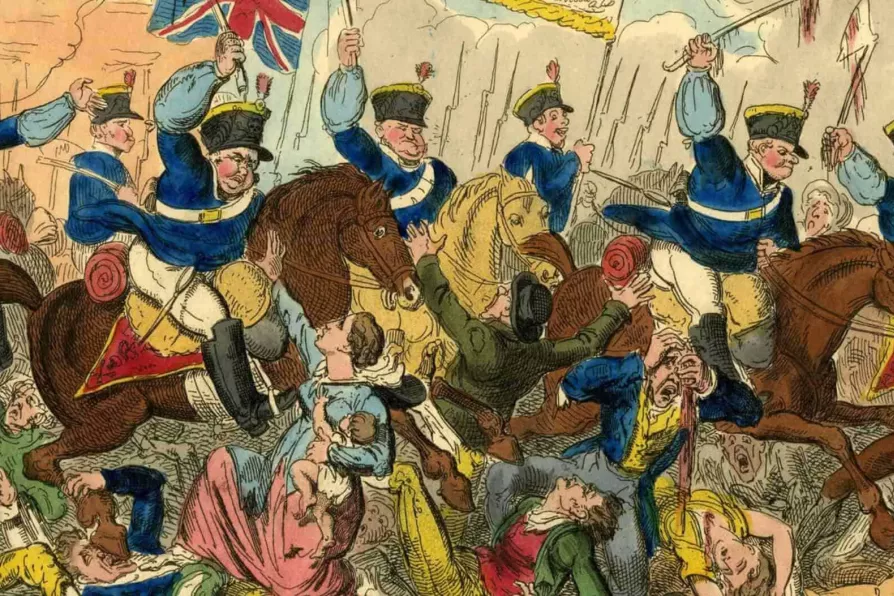Labour prospects in May elections may be irrevocably damaged by Birmingham Council’s costly refusal to settle the year-long dispute, warns STEVE WRIGHT

 A contemporary cartoon depiction of the Peterloo Massacre
A contemporary cartoon depiction of the Peterloo Massacre
ON Monday August 16 1819 in central Manchester, around 60,000 people gathered to protest for the right to vote, which few, if any of them, had. Most of the men or their descendants wouldn’t get the vote until 1918 and many of the women until 1928.
The yeomanry, local businessmen on horseback, rode into the protesters, on the order of Tory magistrate William Hulton, and cut them down with sabres. Tens were killed and thousands injured.
The reason for the attack remains unclear. It may be that the government had ordered it. It might be that the magistrates acted on their own — they were certainly supported by the government afterwards.

It’s not just the Starmer regime: the workers of Britain have always faced legal affronts on their right to assemble and dissent, and the Labour Party especially has meddled with our freedoms from its earliest days, writes KEITH FLETT

The government cracking down on something it can’t comprehend and doesn’t want to engage with is a repeating pattern of history, says KEITH FLETT

KEITH FLETT traces how the ‘world’s most successful political party’ has imploded since Thatcher’s fall, from nine leaders in 30 years to losing all 16 English councils, with Reform UK symbolically capturing Peel’s birthplace, Tamworth — but the beast is not dead yet











